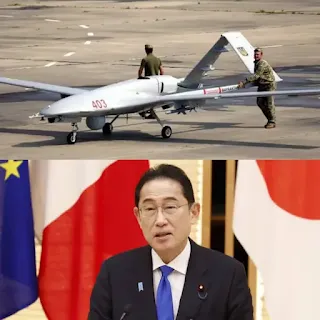The head of the Turkish drone company Baykar, Khaluk Bayrakdar, revealed that his company has begun construction of a factory for its drones on the outskirts of Kiev to begin production in 2025, while the Kremlin has pledged to destroy it as part of disarmament of Ukraine.
He added: “We need about 12 months to complete construction, and then we will move on to internal operations, equipment and organizational structure. The factory in Ukraine is large, and we plan to employ about 500 people in it.”
He added that the factory's annual production capacity will reach about 120 aircraft, and that it has not yet been determined whether TB2 or TB3 aircraft will be produced there.
Regarding potential security concerns, he said, “The plans are being fully implemented and nothing can stop them.”
Ukrainian forces had previously complained that Russian electronic warfare systems had made these aircraft “useless,” while the Russian army announced that Kiev forces were no longer using them, as Russian defenses shot them down as soon as they appeared in the air.
It is noteworthy that Kremlin spokesman Dmitry Peskov confirmed that Russia will destroy this factory as part of the disarmament of Ukraine, and that it will not affect the conduct of the Russian military operation.
Kishida: Japan is committed to signing the peace treaty with Russia
Japanese Prime Minister Fumio Kishida affirmed on the day of the "National Rally for the Restoration of the Northern Territories", which Japan celebrates, his country's commitment to signing the peace treaty with Russia and "reclaiming" the Kuril Islands.
Kishida said: “It is unfortunate that even today, 78 years after the end of World War II, the issue of the northern regions has not been resolved and the peace treaty between Russia and Japan has not been signed. But the government is still committed to the necessity of settlement and signing of peace.”
Kishida stressed that the deterioration of relations between Russia and Japan was caused by the Russian military operation in Ukraine.
On February 7 of every year, Japan witnesses demonstrations of the “National Rally for the Restoration of the Northern Territories,” which is the date of the signing of the Russian-Japanese border treaty in 1855, which Japan violated in World War II.
Ministers and deputies from the ruling and opposition parties and former residents of the southern part of the Kuril Islands traditionally participate in these gatherings.
It is noteworthy that in 1956, Tokyo and Moscow signed a ceasefire agreement, revived diplomatic relations, and concluded a peace treaty, after Tokyo’s defeat in World War II, but Tokyo did not ratify it.
The Japanese side links peace with Moscow's return of the 4 Kuril Islands that the Soviet Union annexed to its territories as part of the results of World War II.
Tokyo bases its demands on the Russian-Japanese Trade and Border Agreement of 1855, while Moscow's position is that the Kuril Islands were annexed to the Soviet Union as a result of World War II, and that Russia's sovereignty over the islands is legitimate, and the issue of their ownership has been closed forever.
Tags:
europe

